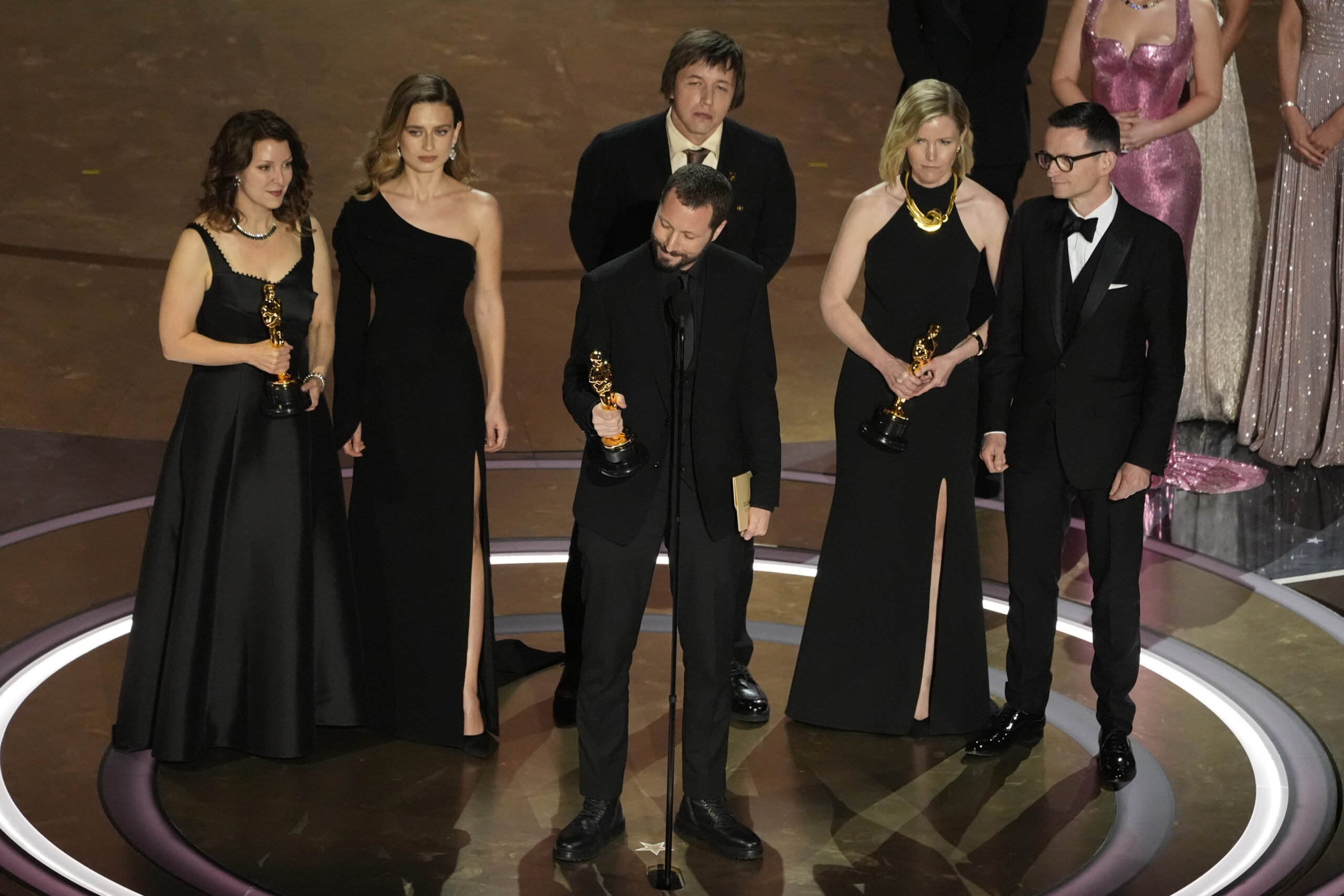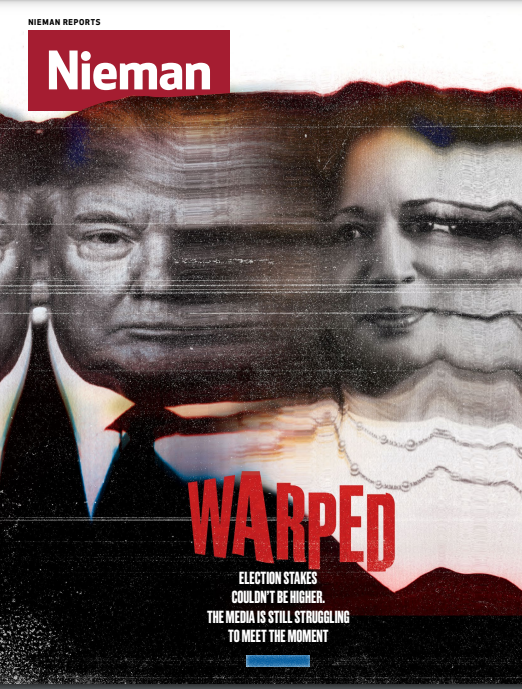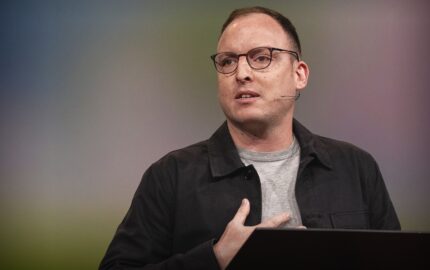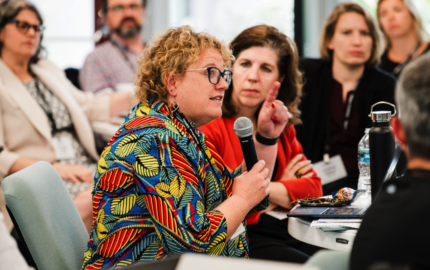As editor-in-chief and executive producer of Frontline, PBS’ flagship investigative news program, Raney Aronson-Rath oversees the production of about 20 documentaries every year. But last year, one Frontline documentary stood out from the rest. “20 Days in Mariupol” is a harrowing portrait of Russia’s siege of the Ukrainian port city in early 2022.
Ukrainian AP video journalist Mstyslav Chernov and his colleagues photographer Evgeniy Maloletka and field producer Vasilisa Stepanenko were in the city as it was surrounded by Russian troops and recorded the destruction. Before escaping to safety themselves, they sent dispatches for the rest of the world to witness the digging of mass graves, targeting of shelters, and bombing of a maternity hospital. The footage, narrated by Chernov, became “20 Days in Mariupol,” which was made in partnership with Chernov, Derl McCrudden, AP’s vice president of global news, and Michelle Mizner, an editor and producer with Frontline. The film won the 2024 Academy Award for best documentary feature.
In March, Aronson-Rath spoke to Nieman fellows about how she shaped the footage of “20 Days in Mariupol,” the power of telling a story from a reporter’s perspective, and why she fought for PBS to allow Frontline documentaries to be viewed for free on YouTube. Edited excerpts:
On the genesis of the film
We, like all of you probably, were seeing the maternity ward images coming out of Ukraine. We were doing a big film with the AP at the time on alleged war crimes that aired last fall. We had a major effort underway in Ukraine right away with The Associated Press. We had a team in the country within about seven or eight days. That’s adjacent and parallel to what was happening in Mariupol. We weren’t in Mariupol, obviously, but we were right across the border, trying to get on the ground there with the people who were investigating war crimes.
We were with the AP when we started to hear the inside story of the team that was in Mariupol. But we didn’t know who they were. They got out, and they told us that they got out with more footage than what was seen on the news. We met with Mstyslav the day after he got out of Mariupol. He was in an undisclosed location; it was over Zoom. He told me that he started to think he had a documentary film about three or four days into the siege. So he started to shoot it that way.
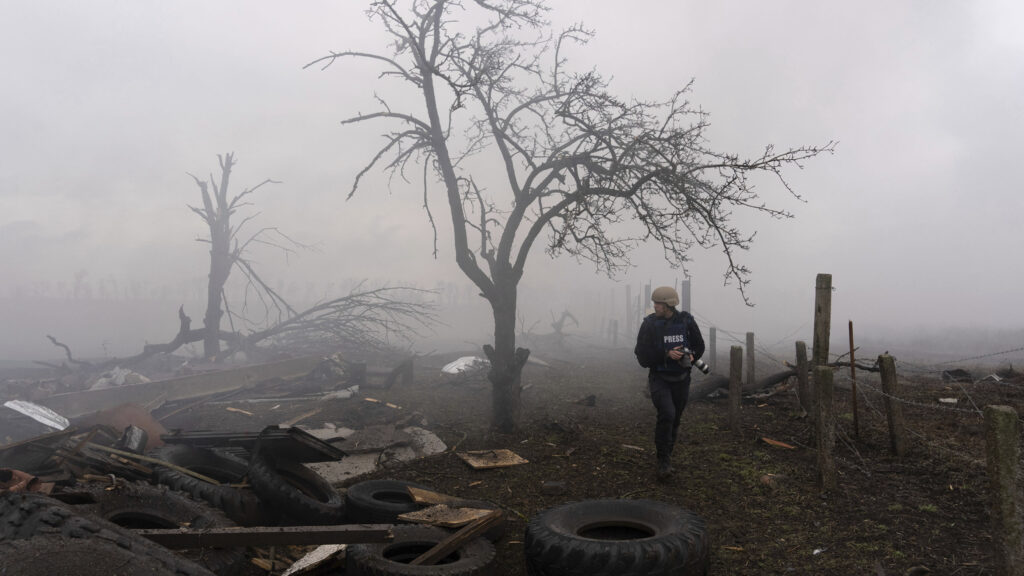
It took [some time] for us to get a hold of [the footage] because he was still in Ukraine. And we started to review the rushes really quickly. We said yes right away because I thought, even if it was a short film, their story of what they did, and what they documented was enough for Frontline. [We wanted] anything we could get from our reporters’ point of view. We thought it would be a short until we saw the footage — then we realized, there’s something bigger here.
On narrating the film
It took a while to convince Mstyslav to be the voice of the film. That was a dance because he didn’t really want the story to be about the journalists. He really wanted to center the Ukrainian people who were killed and suffered. We know this city is still under occupation.
Michelle Mizner [editor and co-producer of the film] said something that really struck me, which is that as she was watching the footage multiple times — and she was talking to Mstyslav all day long — that his voice was helping her watch this. It just became clear we needed him to tell us the story as opposed to just being on our own watching it.
I will say because he’s so remarkable that every one of those words are his words, even if we helped him find those words. He’s very clear on what he wanted to say and what he didn’t want to say. He has a very strong voice, he has a very strong point of view, and that’s what makes him such a great filmmaker. But he took our help and that’s what editors do. So I think that was really for me like a joy to see him find his voice.
On the documentary's impact
I think the most important thing about this film is that it’s a record that can’t be erased of what happened in Mariupol. Full stop. And if you look at the efforts right now with disinformation and misinformation, if they hadn’t documented what happened in Mariupol, we wouldn’t know what actually happened, because people who create disinformation and lies are very clever. So for me, boots on the ground, actual reporters in the field, documenting what actually happened is our job.
And then another question is, what does it really do for the world? Is it going to change the trajectory of the war? I don’t know. I will tell you that this film in particular — the conversations we had around it at the State Department, [they were] in the European Parliament coming up in April — I do think it’s kind of broken through at a different level, where influential people are actually watching it. But I can’t tell you whether that’s going to change anything for Ukraine, other than just to make sure that we have a record of what happened there.
On winning the Oscar
It was a really emotional moment. [It was the] first Ukrainian Oscar — that’s actually what struck me the most about being there with [the team] and witnessing their achievement. It’s [Frontline’s] first Oscar, too. We’re in the journalism space, but we are also a nonprofit, so we don’t have the budget that a lot of the platforms have, or other big TV documentary series have, so it’s really hard for us to play in that space. And a lot of earned media attention takes boots on the ground for all of us, especially Mstyslav. So, I was proud of the effort. I was psyched that nonprofit journalism was on the Oscar stage.
On the importance of keeping documentaries in front of a paywall
I have seen a hunger for documentaries that is cross-generational in the time that I’ve been at Frontline, and that has been because we’re in front of a paywall. I believe that the reason that people don’t really watch documentaries is because you have to pay for them, or you have to be subscribing to something. What I’ve seen in the streaming world is that our films are seen by younger generations, people in their 20s and 30s. And frankly, they don’t ever come to PBS and they never did. There is this idea that you would kind of like “age into” to PBS. I don’t accept that. I believe our films should be in front of the paywall for all people, regardless of geography, age, race, or anything like that.
I think there’s a benefit to saying nonprofit media should be in the public interest and should be free. I really believe it. I know it’s earnest. But then we see massive audiences for some of our films — especially the corporate accountability films, like our Amazon film, films on Facebook, the power of big oil. For those films, millions of people come.
